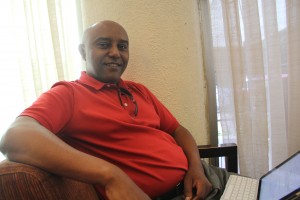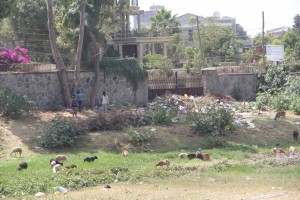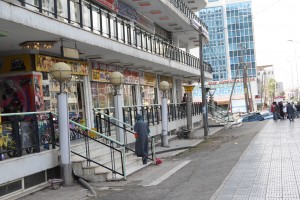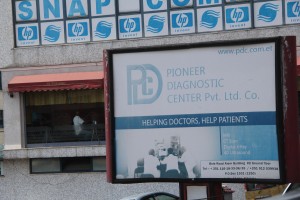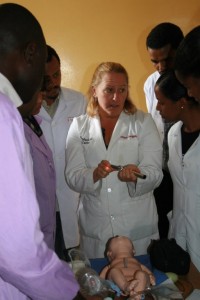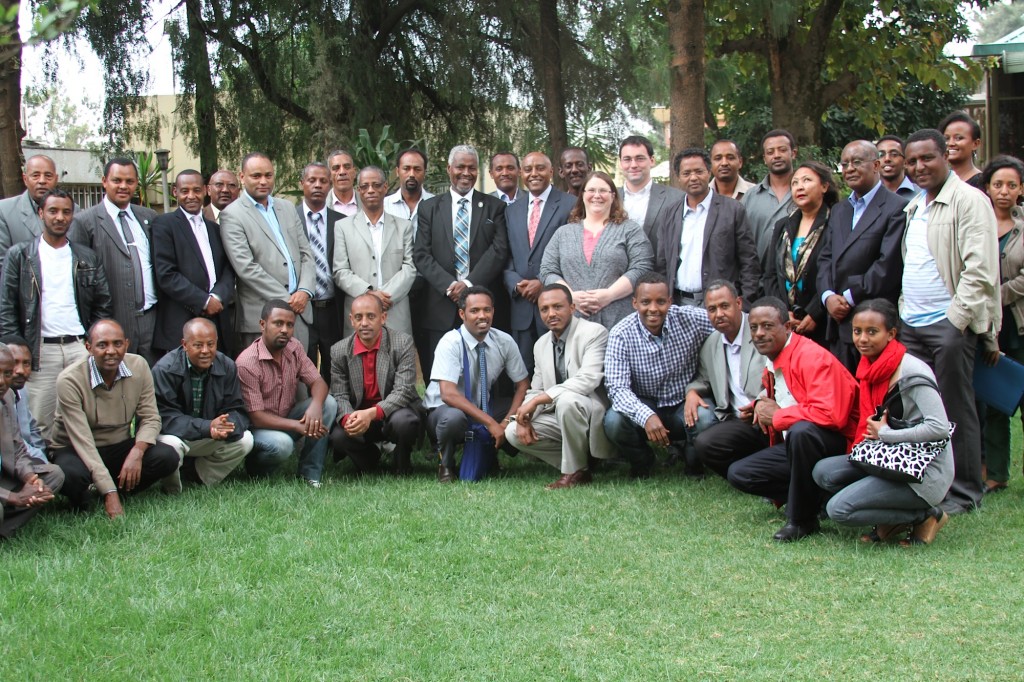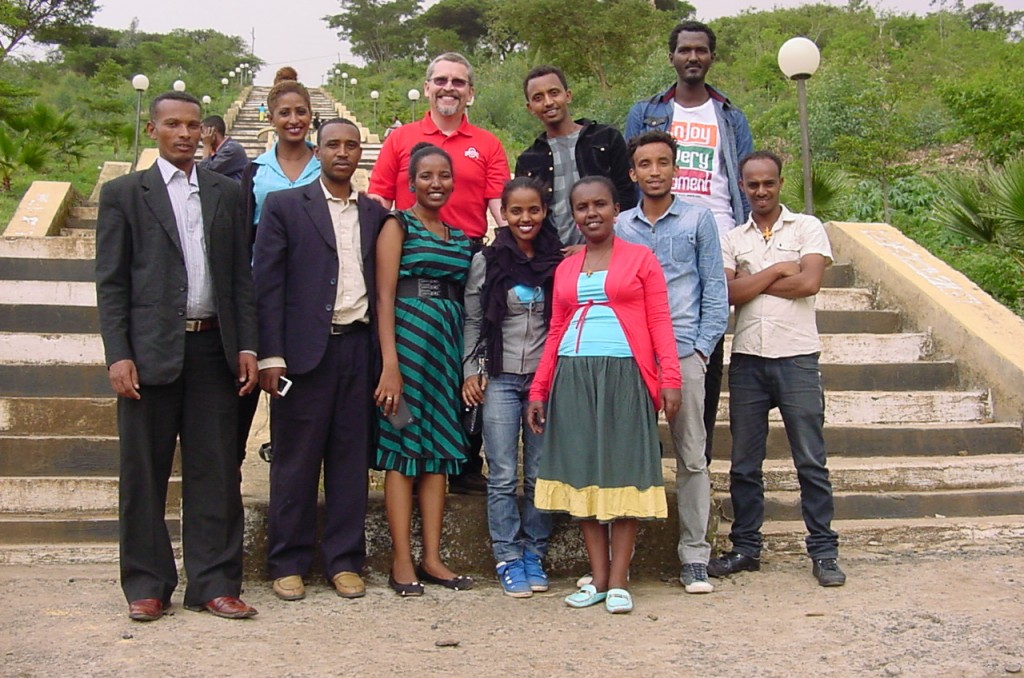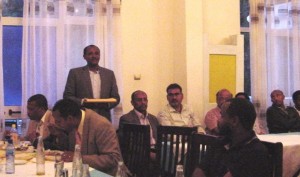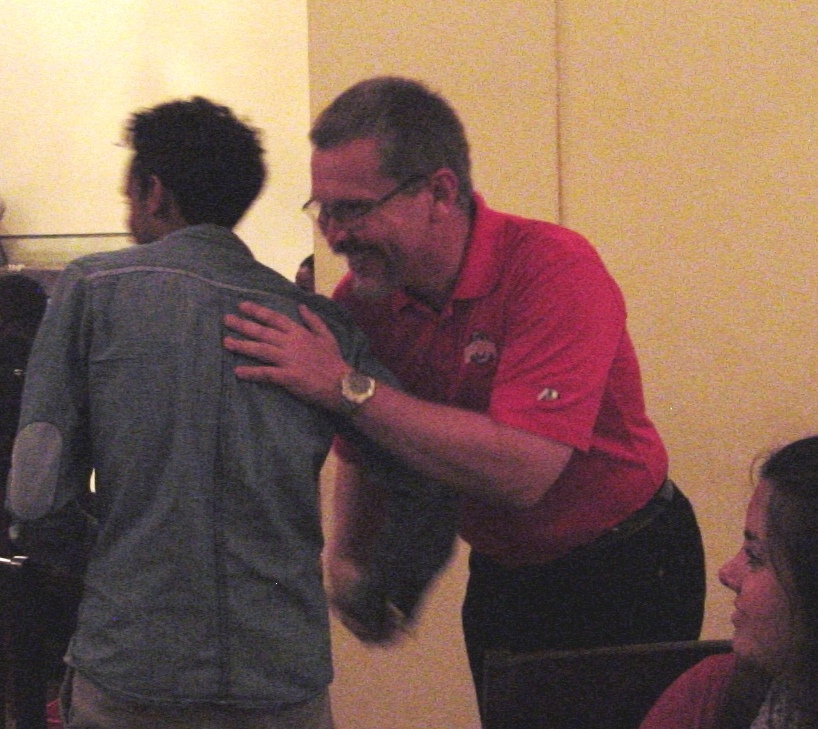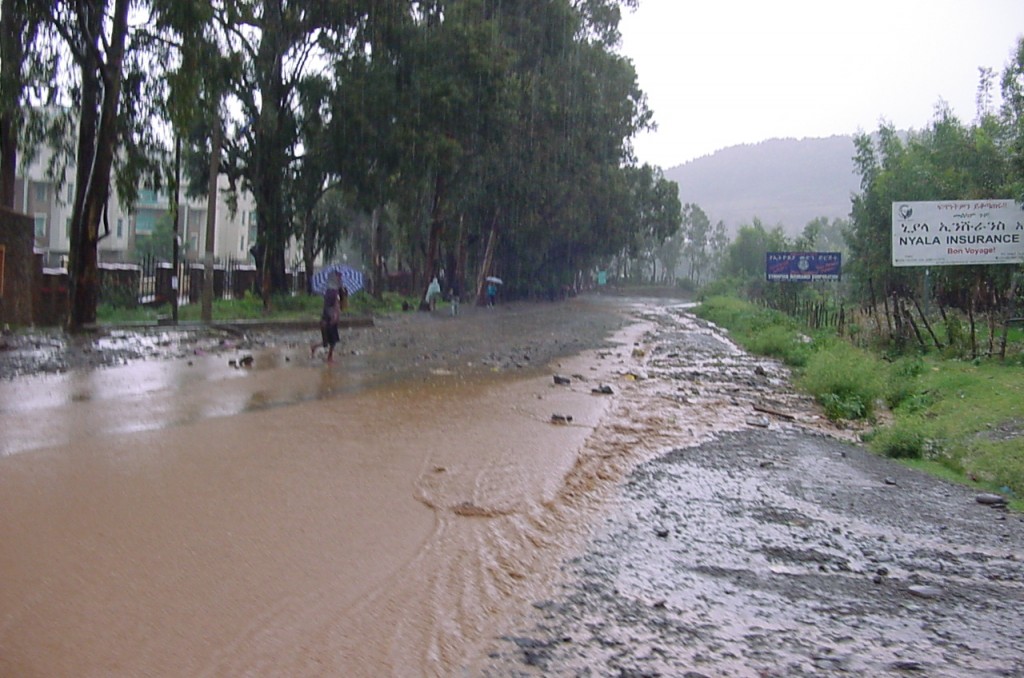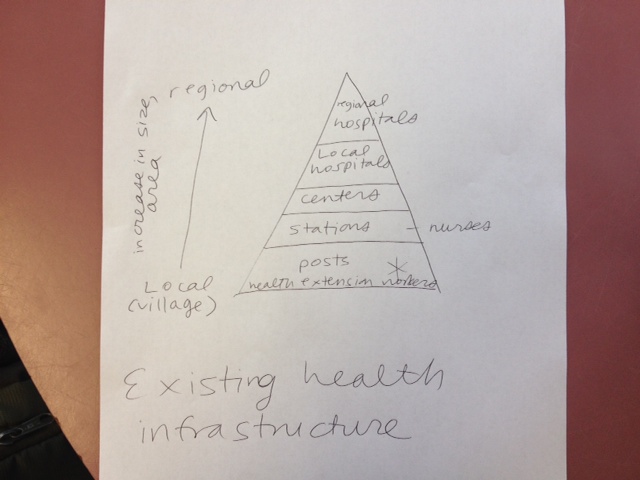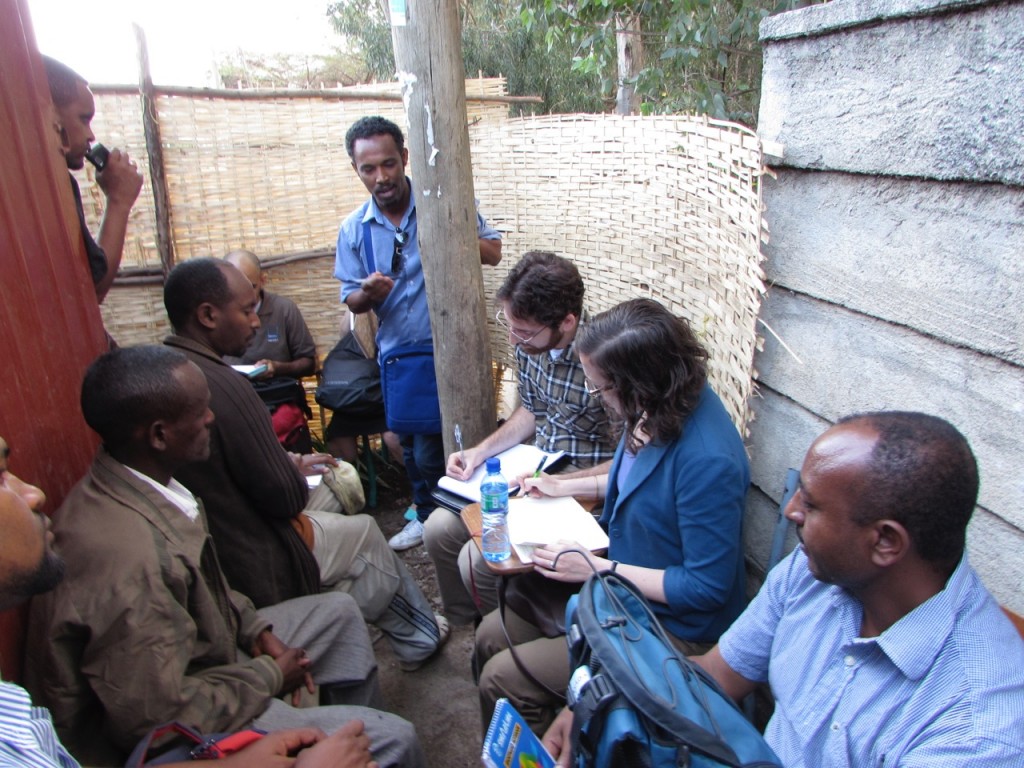The headline above is an old Ethiopian proverb that seems to fairly well sum up my first day in this amazing country.
I have joined my incredibly talented Distance Education colleagues, Cory Tressler and Kevin Kula, as guests of the universities of Gondar and Addis Ababa. Our six-day mission: to launch a Digital First iPad initiative with veterinary Prof. Wondwossen Gebreyes and work on developing health communication messaging for the nation’s out-of-control rabies epidemic.
The idea of going to Africa is almost as daunting as actually getting here. It’s easy to read about a place–eastern Africa, next to Somalia, one of the only countries on the continent not colonized, major coffee exporter–but any level of true appreciation takes an immersive experience, and a trial by fire of 12 hours on a plane solidifies the quest.
After watching eight hours worth of movies and sampling TV comedies, listening to one episode of the podcast Serial, and devoting four hours to syllabi construction, I landed in Addis aboard an Ethiopia Air flight at 7:30 a.m. local time (11:30 p.m. the night before in Columbus).
The first steps off the plane reveal how different life must be in this arid, high-altitude adventure: my first stop was an Ebola scanner to see if I had a temperature and questions about whether I had come from western Africa.
After 80 minutes in the passport control line, I claimed my luggage and found the hotel shuttle, happily ending up in the bed for my first two hours of sleep in 24.
The real differences in Ethiopian life were discovered when I ventured outside the hotel for a brief walk with my camera. Six shots into my journey, I was stopped by a pair of pimply-faced Addis police officers who asked why I was taking pictures. I tried to explain the idea of photo tourism and was feeling pretty cofident, until they requested my passport and began to walk around with it , speaking in Amharic.
A Good Samaritan thankfully stopped to translate and after 15 minutes, they returned my passport, shook my hand and sent me on my way.
My photos, shown below, were pretty benign, but further research revealed no photos could be taken in Ethiopia of government offices or bridges, and shooting embassy photos can quickly get an SD card confiscated.
The day was rounded out by a terrific iTunes U afternoon with Dr. Gebreyes, Cory, Kevin and our local guardian angel Tigist Endashaw, followed by an authentic Ethiopian dinner. Tomorrow our work begins with a flight and full day of meetings at University of Gondar.
Next time someone flippantly says in America, “Well it’s a free country,” please take a second to think about that, and remember there are places in this world where rights are as fluid as jello.
With ever hour I will remember to be grateful for the fact I am a guest in this incredible place and respect its ways and customs. I will also thank the Founding Fathers for freedoms we enjoy and too often take for granted at home.
And although my camera rested for the remainder of today, I think he’s pretty likely to make it back out tomorrow.
